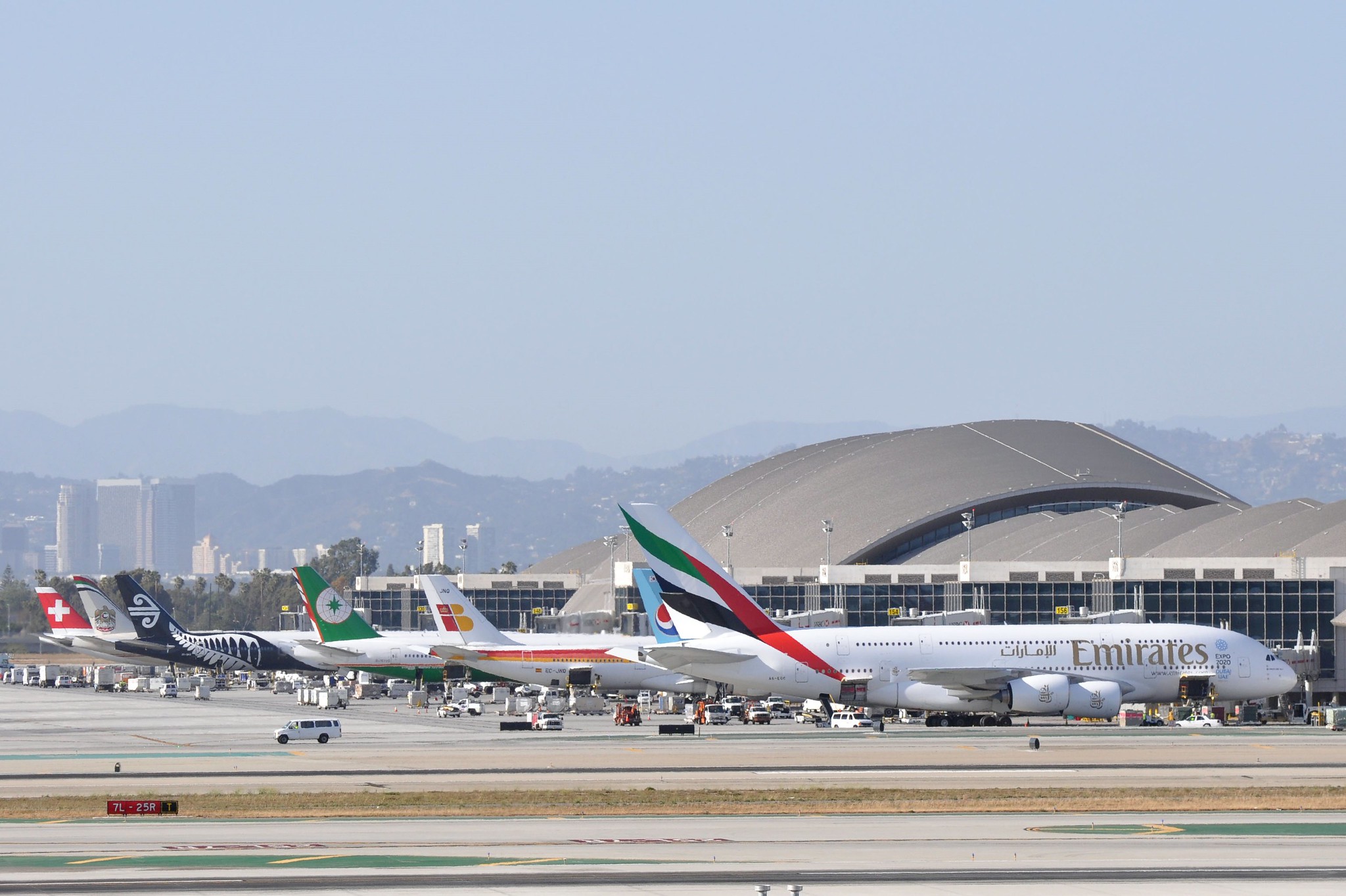How the Coronavirus Is Affecting American Jihadist Travelers
The pandemic has slowed global travel significantly. But a few determined individuals show that the terrorism threat posed by American foreign fighters remains strong.

Published by The Lawfare Institute
in Cooperation With

The coronavirus pandemic has slowed global travel across the board. Countries around the world have cut down on air traffic, enforced quarantine measures for arriving travelers and blacklisted other countries from inbound travel. With all the heightened restrictions, many analysts predicted that one demographic in particular would be negatively impacted: foreign terrorist fighters, individuals who travel from their countries of residence or nationality to join terrorist organizations abroad. The pandemic has also highlighted the dedication, resourcefulness and continued threat posed by some extremists who are dead set on traveling to participate in jihadist organizations.
Predictions of the slowdown in foreign fighter travel have proved mostly true around the world, and the U.S. is no exception. Since the start of the pandemic and subsequent increase in travel restrictions, fewer than a handful of Americans are publicly known to have attempted to join designated foreign terrorist organizations abroad. Instead, other extremist activities have ramped up in recent months as the pandemic has created vulnerabilities in global counterterrorism efforts that terrorists and violent extremists have sought to exploit.
These problems began to appear as early as March. Far-right actors on both sides of the Atlantic began capitalizing on coronavirus conspiracy theories; concerns rose over the massive increase in the number of vulnerable young people engaging in unsupervised Internet usage; and online recruitment efforts for neo-Nazi and other ideological groups expanded on platforms like Gab, where recruiters encourage followers to use the pandemic to accelerate their strategy of igniting a race war. And just last week, U.S. counterterrorism financing officials dismantled three major online fundraising campaigns, one of which involved a key Islamic State financial facilitator creating a fake website that purported to sell N95 protective masks to unsuspecting customers.
Understandably, then, counterterrorism efforts have largely been diverted to address these and other coronavirus-era vulnerabilities being exploited by terrorists and violent extremists. By comparison, one or two individuals trying to travel abroad to join designated foreign terrorist organizations—and being so easily disrupted by federal law enforcement at that—might seem a marginal threat. The hundreds of Americans flocking to Syria and Iraq to join the Islamic State’s so-called caliphate in 2014 and 2015 had already slowed to a trickle by 2018 and 2019 as the group lost vast swathes of its former territorial control. So, it was only natural that already-thinning foreign fighter flows would come to a near halt with the arrival of a global pandemic.
But would-be American foreign fighters have simply adapted to the new landscape wrought by the pandemic. Their willingness to overcome travel hurdles demonstrates their commitment to extremist causes. The stories of two jihadist supporters who dared leave the U.S. during the pandemic show that the resolve of some American jihadist travelers has not waned in these uncertain times.
The first of the two travelers was a research coordinator at a medical clinic in Minnesota who tried to leave the U.S. allegedly to join the Islamic State in Syria. Muhammad Masood, a 28-year-old resident of Rochester, Minnesota, first reached out on social media to FBI confidential human sources whom he believed were Islamic State supporters in January 2020. He requested assistance from the sources in joining the Islamic State either in Syria and Iraq or in Afghanistan. Masood told the sources that he wanted to fight on the frontlines but also wanted to help wounded Islamic State fighters with his skills as a trained doctor. Among other things, he allegedly discussed donating bitcoin to the Islamic State and using small drones to conduct remote unmanned bombings.
In conversation with a second FBI source whom Masood believed to be an Islamic State commander, the medical researcher mentioned that he became attracted to jihadism by listening to the lectures of the now-deceased American al-Qaeda propagandist Anwar al-Awlaki. Later in their conversation, Masood pledged allegiance to the Islamic State’s new caliph, Abu Ibrahim al-Qurashi, and began forming concrete plans for his travel to join the group in Syria. In late February, Masood arranged to fly from Chicago to Jordan, on March 22. Masood planned to be met in Jordan by Islamic State members. Before he could even take a train from Rochester to Chicago, however, the Jordanian government announced on March 14 that it would be stopping all incoming flights into the country due to the coronavirus.
Undeterred, Masood again contacted the source to find alternate routes into Syria. They devised a new plan whereby Masood would board a cargo ship supposedly bound for the Middle East from a port near Los Angeles. After purchasing new airline tickets for a March 19 flight from Minneapolis to Los Angeles, Masood communicated with the source one last time to make sure his preparations were in order. He was arrested by FBI Joint Terrorism Task Force agents on March 19 at the Minneapolis airport before he could board his flight.
Masood wasn’t the only American resident who attempted to make a mid-pandemic trip to join the Islamic State. Around the same time that Masood was finalizing his back-up plan to join the Islamic State in Syria, the FBI learned that another jihadist supporter was interested in traveling abroad. Jill Marie Jones, a 35-year-old resident of Chandler, Arizona, began communicating with an FBI online covert employee (OCE) on social media in March. Jones soon began sending propaganda released by al-Qaeda’s central media outlet, As-Sahab Media Foundation, to the OCE. By April, Jones was already detailing to the OCE plans to leave the U.S., noting that if her coronavirus stimulus check had been greater, she would have already left to join terror groups abroad.
Their conversations turned to joining al-Qaeda in the Afghanistan-Pakistan region, where the movement first formed during the Soviet-Afghan War of the 1980s. Jones mentioned that she saw a viable destination in the Kunduz province, which shares a border with Tajikistan in Afghanistan’s north. When asked by another OCE how she thought she could help al-Qaeda, Jones responded, “Possibly websites, fixing translations, advertising/recruitment, subtitles, even checking official papers?” She later sent the OCE $500 using a Visa prepaid card, allegedly to help al-Qaeda fighters purchase scopes for long-range rifles to attack American patrols.
Jones began formulating more concrete plans in late May to join al-Qaeda in Afghanistan. Her initial plan involved taking a flight to Dushanbe, Tajikistan, and then crossing into Afghanistan from there. On June 6, she purchased airline tickets from Phoenix to Los Angeles scheduled for July 21, and from Los Angeles to Dushanbe with a layover in Istanbul. Two days later, Jones discovered that Tajik officials had closed the airport in Dushanbe due to the coronavirus, forcing her to create a new plan.
With Afghanistan seemingly out of the question, Jones conferred with the OCEs about other options. She settled on flying to Istanbul and then traveling south to the border with Syria, where she would link up in Idlib with al-Qaeda’s Syrian affiliate, Tanzeem Hurras ad-Deen. Jones rebooked her flights from Phoenix to Los Angeles and from Los Angeles to Istanbul for a day later than her original planned departure. On July 22, FBI agents arrested Jones at the airport in Phoenix.
The Coronavirus and the American Terrorism Threat Today
Despite initial setbacks, Jones and Masood demonstrated a high degree of determination in finding new ways around coronavirus-related travel restrictions. For perspective, Masood’s back-up plan would have left him on a shipping boat for weeks. Their cases show that even during the pandemic, committed Americans continue to risk traveling, albeit in marginal numbers, in order to join foreign terrorist organizations overseas. The willingness of these individuals to attempt to travel overseas in the middle of a pandemic highlights the continued appeal of jihadist groups and the ongoing threat posed by more traditional forms of terrorism.
Nonetheless, where the pandemic has presented new opportunities for terrorists and violent extremists at home and online, it has also presented challenges for supporters like Jones and Masood. Coronavirus-era travel restrictions forced both supporters to make major changes to their plans, delaying their dates of departure by weeks, if not months. As far as is publicly known, Jones and Masood stand alone in their travel endeavors. And in some cases, obstacles to travel have prompted American jihadist supporters to plan attacks domestically. Muhammed Momtaz Al-Azhari, for example, was arrested by the FBI earlier in May for possession of weapons he allegedly intended to use in an attack inspired by the Pulse nightclub shooting.
The terrorism threat to America remains fractured and multifaceted. Law enforcement agencies and the intelligence community may have shifted their resources from monitoring international travel in order to triage more pressing issues, but law enforcement will likely continue to grapple with a small number of determined American travelers who remain committed to heading abroad. The travails of would-be foreign fighters show that terrorist groups and their supporters remain adaptable in the face of new challenges and changing environments. Although foreign jihadist travelers no longer pose the highest-order counterterrorism threat, individuals like Masood and Jones will continue to force U.S. counterterrorism officials to remain vigilant in the coming months.



.jpg?sfvrsn=d45482bc_5)

